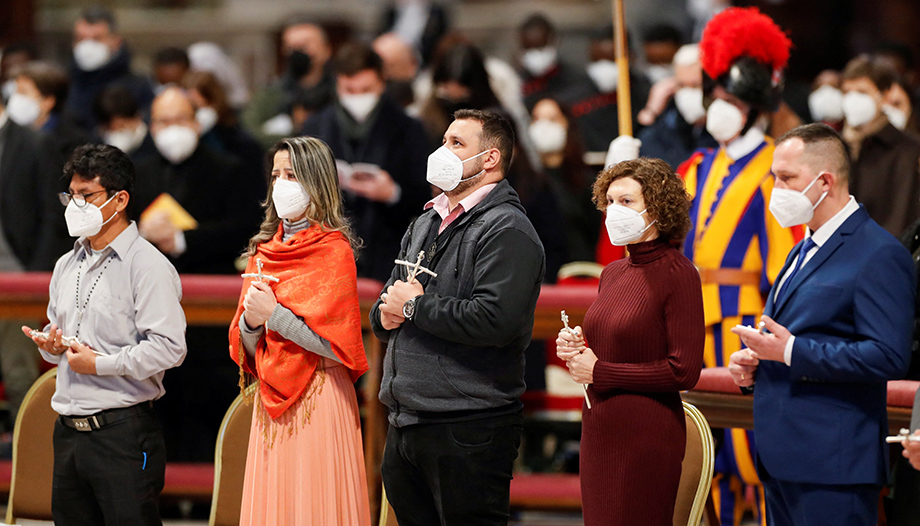Last August 24, Pope Francis published a letter addressed to the whole Church on the occasion of the 50th anniversary of the motu proprio of St. Paul VI, Ministeria quaedamin which the pope instituted the lay ministries. In this case, Francis invites us to reflect on the ministries, that is, certain functions that some of the faithful carry out in the Church.
On that occasion, Pope Montini put an end to a stage in the Church in which the entrance to the clerical state was done through the tonsure, an act that consisted of cutting a little hair of the candidate to holy orders, which were divided into minor orders and major orders. Since the entry into force of Ministeria quaedamOn January 1, 1973, the ministries of lector and acolyte could be conferred not only on candidates for the priesthood, but also on lay faithful.
Ministries accessible to lay people
Francis has introduced some changes along the lines of the ministries instituted by Paul VI. On the one hand, on January 10, 2021, the motu proprio was issued Spiritus Domini, which allowed the conferring of the lectorate and the acolyte to women. On the other hand, on May 10 of the same year, the motu proprio Antiquum ministeriumwhich created the ministry of catechist. Therefore, the pontiff points out, it is a question of deepening the doctrine of ministries rather than a rupture, since from the beginning of the Church we find various ministries, gifts of the Holy Spirit for the edification of the Church. Thus, these ministries are directed to the common good of the Church and the edification of the community.
In the present letter, Francis warns that ministries cannot be subject to ideologies or arbitrary adaptations, but are the fruit of discernment in the Church, following the example of the apostles who found it necessary to replace Judas, so that the Apostolic College would be complete.
Thus, the pastors of the Church must discern what the community needs at each moment, guided by the Holy Spirit, and must make adaptations aimed at fulfilling the mission that Christ entrusted to the apostles, a supernatural mission that aims at sanctification.
Therefore, it is not a matter of creating ministries so that everyone in the Church has something to do during Mass, but to serve, which is what the word ministry means, and to contribute to the edification of the Church, each according to his or her state.
Here we find a latent danger in the Church, the clericalization of the laity, that is, to attribute certain functions to the laity, some of them proper to the clerical state, as if the laity did not have a function of their own. Hence the definition of the Code of Canon Law is very poor in defining the laity, pointing out that the laity are those who are neither clerics nor consecrated (cfr. 207 § 1).
On the other hand, the dogmatic Constitution Lumen Gentium presents what the laity really are: "It belongs to the laity, by their own vocation, to seek to obtain the kingdom of God by managing temporal affairs and ordering them according to God. They live in the world, that is, in each and every one of the duties and occupations of the world, and in the ordinary conditions of family and social life, with which their existence is as it were interwoven. There they are called by God, so that, carrying out their own profession guided by the evangelical spirit, they may contribute to the sanctification of the world as from within, in the manner of leaven." (Lumen Gentium, n. 31).
With these ideas in mind, Pope Francis invites the Episcopal Conferences to share their experiences of how these ministries instituted by Paul VI over the past 50 years, as well as the recent ministry of the catechist, as well as extraordinary ministries, for example, the extraordinary minister of Communion, and those carried out de facto, when a parish organizes for some of the faithful to do the readings at Mass or assist in the celebration of the Eucharist, without having been officially instituted as lectors or acolytes.
It remains to be seen when and how this dialogue or exchange of experiences will take place, which we hope will move along the two lines indicated by the Pope in his letter, the common good and the edification of the community, that is, the Church of Christ.












